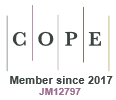Thirty years of IJWF
International Journal of Wildland Fire 30(6) i-i https://doi.org/10.1071/WFv30n6_ED
Published: 10 June 2021
The International Journal of Wildland Fire (IJWF), the official journal of the International Association of Wildland Fire (IAWF), was started in 1991 to provide the international wildland fire science and fire management community with a much-needed peer-reviewed outlet for the latest research on all aspects of wildland fire. Its purpose is to disseminate high quality fire research information within the international science community as well as to practitioners and policymakers who need access to the latest science-based information to guide fire management policy and practice. Since its inception 30 years ago, IJWF has published over 1800 papers on topics ranging from social and human health aspects of wildland fire to fire economics, effects of fire on ecosystems, fire behaviour and physics, fire suppression, smoke transport, and interactions between fire, weather, and climate. The IJWF was initially a quarterly journal and the first nine volumes (1991–1999) were self-published by the IAWF. CSIRO Publishing took over management and publication of IJWF under contract with IAWF in 2000. Through to 2006, the journal was quarterly. Since 2007, the number of issues per year has gradually increased to accommodate rapid expansion in fire research globally. The journal has been monthly since 2016 and now publishes about 90 papers per year.
IJWF is a top quartile journal, consistently ranking in the top 10 of over 60 journals in the Forestry category of Clarivate Analytics. Its content is managed by two Editors-in-Chief and team of about 45 Associate Editors (AEs) who have high-level expertise in traditional and emerging disciplines of wildland fire science. Our dedicated AEs and peer reviewers ensure that IJWF is publishing high-quality and internationally relevant wildland fire science produced in this increasingly complex and interdisciplinary field. While most papers published originate from North America, Europe, and Australia, the journal is truly international, with contributions also from Asia, South America, Africa, and the Middle East.
We are committed to the long-proven approach of anonymous peer review and thorough evaluation of manuscripts by the editorial team. We are also known for our commitment to helping submitting authors improve their manuscripts if we believe the underlying science is sound. This inevitably takes time and often involves more than one revision, but it supports scientists and ensures that the quality of the research published in IJWF is of the highest standard. We would like to take this opportunity to express our gratitude to our AEs, past editors and reviewers for their invaluable contributions in this process, and all authors for choosing IJWF as the journal to disseminate their work. We also thank our sponsoring organisation (IAWF) and the members of the Editorial Advisory Committee for supporting the journal as it continues to grow and evolve. Currently the journal has a hybrid publishing model, which includes fee-based Open Access and subscription components. In line with international trends an increasing proportion of papers are published Open Access.
In celebration of its 30th anniversary, we have put together a virtual issue that includes a series of review papers published in IJWF over the past 12 years. It covers a wide spectrum of topics including economics, firefighter health and safety, fire behaviour and emissions, fire management, remote sensing of fire and fuels, effects of fire on vegetation, mammals and postfire erosion and runoff, effects of fire on human health, indigenous fire management, and interactions between fire and climate change.
There are few areas of fundamental and applied science that are as diverse as wildland fire research and we feel this is the best way to acknowledge this wide range of disciplines and to provide readers with critical overviews on key topics in wildland fire science. In line with our commitment to diversity, authors and co-authors come from at least 7 countries, and the corresponding authors on 6 of the 15 papers are female. These papers provide examples of the impactful research disseminated through IJWF. We invite you to take a look at the full breadth of topics included in the virtual issue, which is available on the IJWF website at https://www.publish.csiro.au/wf/virtualissue/3062.
In the past several years, we have seen increasingly severe fire seasons in many regions of the world. Major fires are regularly in the news, communities are destroyed, human health impaired and ecosystems impacted. Disseminating the outcomes of high-quality and internationally relevant wildland fire research will only increase in importance as our climate and approaches to land management change. We look forward to IJWF continuing to serve the global community by publishing high quality research on the most relevant topics in wildland fire.
Susan G. Conard, Editor-in-Chief;
Stefan Doerr, Editor-in-Chief;
Jenny Foster, Publisher (May 2021)


